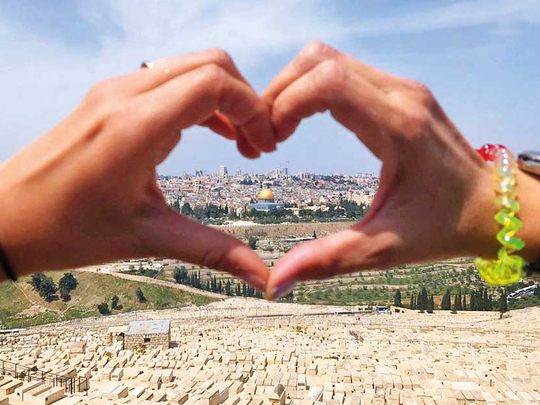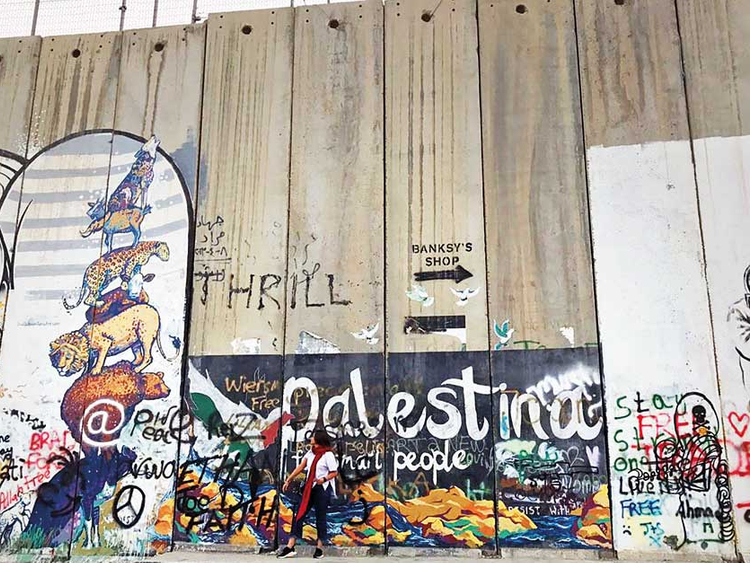
Dubai: National days, anniversaries, and holidays usually celebrate positive occasions.
But each year, Palestinians recall two days signifying the falling-apart of Palestinian society and the exile of hundreds of thousands: May 15, the Al Nakba or ‘catastrophe’, in 1948 that led to the fleeing of approximately 750,000 Palestinians and June 5, the Al Naksa or ‘setback’, in 1967 which made around 400,000 Palestinians and other Arabs refugees.
It was the 1967 war that again reshaped the Palestinian-Israeli conflict for the next generation of Palestinians.
In six days, Israel was able to defeat of the armies of Egypt, Syria and Jordan, and occupy large swathes of Palestinian, Syrian and Egyptian land.
Although the 1967 war was 50 years ago, the consequences of it are still felt by the next generation of Palestinians.
Al Nakba diaspora:
“I am from 48 areas,” she says proudly.
Palestinians refer to areas Israelis captured and created their state on as 1948 areas.
Her family is from one of those now-occupied towns — Nazareth, which some historians believe to be the real birthplace of Jesus, despite Christian belief he was born in Bethlehem.
“My grandparents had to walk to Syria on foot when the Israeli forces came to Nazareth — it was a Saturday,” Sharif recounted with impressive attention to detail.
Israeli soldiers knocked on their door and asked them to pack all their belongings and leave. The Sharif family was one of the luckier ones, as Israeli forces committed several massacres of Palestinians during this time.
“My grandmother told me an incredible story that many people cannot comprehend,” she says.
“Because of the hardship of walking while holding two young children alone, she had to make the difficult decision of which child she would continue on with,” she said.
“She kept her toddler son with her and left her baby daughter under a tree.”
Thankfully, the grim story had a happy ending as a man found the baby (Sharif’s aunt) and was able to return her to her family later.
Sharif recounts the hardships her family went through living in refugee camps in Syria, but she said the hardships made their family very determined to be successful.
“My father was born and lived his life in Syria and life was OK for a Palestinian refugee, compared to refugees living in other countries, but he wanted more for his children.”
Sharif said her father moved to the UAE with his three children at the time, which improved matters, but the fact that the family had no official passport made their lives very complicated.
“My dad wanted us to have a better future so he sent my mom to the US to give birth to my brother and I. Although she suffered a lot because she was completely alone there with two young children, it was one of the best things my father could have done,” she said.
Because of the US passport, Sharif was able to travel to Palestine and explore her roots.
Palestinians and Arabs with the exception of citizens of Egypt and Jordan who signed a peace treaty with Israel, are strictly prohibited from entering what is now known as Israel.
“I feel very lucky to have gone to Palestine but the fact that other Palestinians aren’t able to is very heartbreaking,” she says.
She recalls going to Nazareth, which is now a farm town and seeing all the beautiful trees and hills.
For the first time ever she was able to see her great aunt and cousins who now live in Haifa, another Palestinian city in 1948 areas.
Palestinians who did not flee their land in 1948 and stayed, now hold Israeli citizenship and make up 20 per cent of the Israeli population.
“I was so happy and excited to be there, as it was something I only heard about in stories,” she said.
“But my dad had a very different reaction. He felt bitter and angry to see Israelis living on our land and living the life we were meant to have.”
Sharif says no matter what passport she holds she will never forget her homeland.
“When people ask me where I am from, I say ‘Palestine’. I will never let go of my roots.”
— Aya Sadek is an intern at Gulf News












